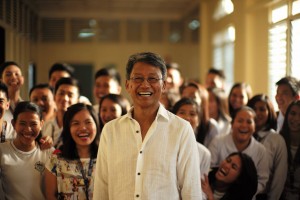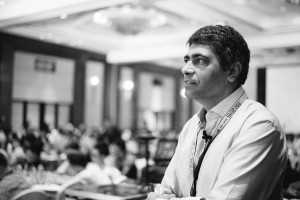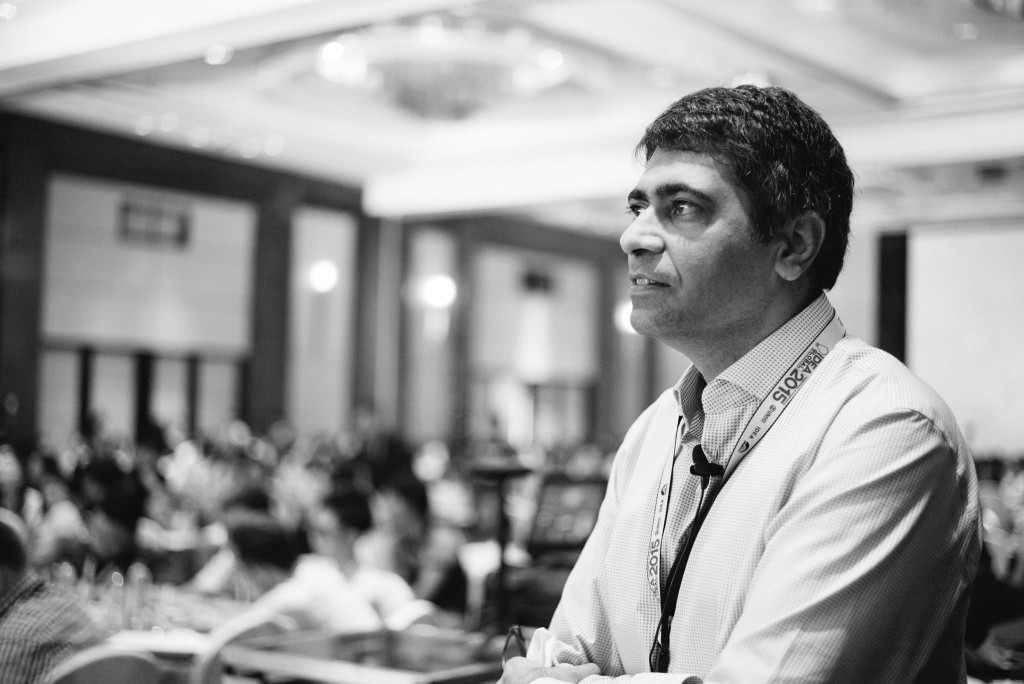New collaboration at the Center will help Philippine universities develop their unique method of entrepreneurship
The Berkeley Method has travelled to the Philippines thanks to a new program between the Center of Entrepreneurship and Technology and the Philippine Development Foundation (PhilDev), a non-profit which seeks to eradicate poverty through education, innovation, and entrepreneurship.
Prof. Ikhlaq Sidhu, chief scientist and founding director of CET, has already started to work on the other side of the Pacific Ocean, where he has begun to build a bridge between the two institutions. The ultimate goal of the program is to improve the Philippine students’ education about entrepreneurship, by helping their professors to design their courses.
Dado Banatao, founder of PhilDev and former chairman of UC Berkeley’s College of Engineering Advisory Board, chose CET among other universities in Silicon Valley. Banatao, who has an Auditorium with this name at the Sutardja Dai Hall building, is a successful venture capitalist and an engineer who pioneered the personal computer chip set and graphics acceleration architecture.
He believes that educating people about entrepreneurship is one of the best ways to create wealth, Sidhu said of Banatao.
A son of a farmer and a housekeeper, Banatao walked barefoot to elementary school in Malabbac, his hometown. Eventually he made it to college, where he studied electrical engineering. Once in the US, he earned a masters degree in that field and worked in several technology companies, where he made important discoveries and inventions in the chip field.
Now, as part of his philanthropic work and efforts to help Philippine students reach their full potential, Banatao has chosen CET to partner with PhilDev.
Through this program, CET is going to help Philippine professors develop their own courses across the different universities, Sidhu said. He explained that “it’s not a matter of duplicating” the courses at UC Berkeley, but of assisting them to design their own, based on their unique environment.
In fact, that is one of the reasons why Banatao chose UC Berkeley among other options, said Sidhu. CET has its own method, a specific approach, but at the same time is broad enough to be applied in different environments, even outside the borders of Silicon Valley.
“Our method is less specific to the environment,” said Sidhu, who explained that it consists of not only a convention of processes, but also takes into consideration the mindset of an entrepreneur. “It doesn’t have to do with where you are,” he said.

PhilDev’s founder Dado Banatao during a visit to his old high school campus, in Iguig, Cagayan. Photo: PhilDev.
Sidhu added that because UC Berkeley is a state university, CET is simultaneously connected to government institutions as well as integrated into the Silicon Valley network. These reasons give CET “an approach that can make sense for a broader segments of the global population,” Sidhu concluded.
In February, Sidhu participated in the 2015 Innovative Development through Entrepreneurship Accelerator (IDEA) Symposium and Workshop, in Cebu City, where he communicated the work that is taking place at CET.
His next visit will be in May, when he and Ken Singer, CET’s Managing Director, will offer a three-day course that will provide more detail on how universities in the Philippines can structure their own programs and offer this materials for their own students.
Later in August, four professors from the Philippines will be selected to participate in the exchange program as visiting scholars. The exchange program will allow the scholars to immerse themselves in the classes and work with CET’s professors in their particular issues in order to develop a “unique adaptation,” Sidhu explained.
The plan is to repeat this program year after year, with visitors who come to CET to learn the method and receive help in order to adapt it to their own reality in the Philippines.
The Berkeley Method has travelled to the Philippines thanks to a new program between the Center of Entrepreneurship and Technology and the Philippine Development Foundation (PhilDev), a non-profit which seeks to eradicate poverty through education, innovation, and entrepreneurship.
Prof. Ikhlaq Sidhu, chief scientist and founding director of CET, has already started to work on the other side of the Pacific Ocean, where he has begun to build a bridge between the two institutions. The ultimate goal of the program is to improve the Philippine students’ education about entrepreneurship, by helping their professors to design their courses.
Dado Banatao, founder of PhilDev and former chairman of UC Berkeley’s College of Engineering Advisory Board, chose CET among other universities in Silicon Valley. Banatao, who has an Auditorium with this name at the Sutardja Dai Hall building, is a successful venture capitalist and an engineer who pioneered the personal computer chip set and graphics acceleration architecture.
He believes that educating people about entrepreneurship is one of the best ways to create wealth, Sidhu said of Banatao.
A son of a farmer and a housekeeper, Banatao walked barefoot to elementary school in Malabbac, his hometown. Eventually he made it to college, where he studied electrical engineering. Once in the US, he earned a masters degree in that field and worked in several technology companies, where he made important discoveries and inventions in the chip field.
Now, as part of his philanthropic work and efforts to help Philippine students reach their full potential, Banatao has chosen CET to partner with PhilDev.
Through this program, CET is going to help Philippine professors develop their own courses across the different universities, Sidhu said. He explained that “it’s not a matter of duplicating” the courses at UC Berkeley, but of assisting them to design their own, based on their unique environment.
In fact, that is one of the reasons why Banatao chose UC Berkeley among other options, said Sidhu. CET has its own method, a specific approach, but at the same time is broad enough to be applied in different environments, even outside the borders of Silicon Valley.
“Our method is less specific to the environment,” said Sidhu, who explained that it consists of not only a convention of processes, but also takes into consideration the mindset of an entrepreneur. “It doesn’t have to do with where you are,” he said.

PhilDev’s founder Dado Banatao during a visit to his old high school campus, in Iguig, Cagayan. Photo: PhilDev.
Sidhu added that because UC Berkeley is a state university, CET is simultaneously connected to government institutions as well as integrated into the Silicon Valley network. These reasons give CET “an approach that can make sense for a broader segments of the global population,” Sidhu concluded.
In February, Sidhu participated in the 2015 Innovative Development through Entrepreneurship Accelerator (IDEA) Symposium and Workshop, in Cebu City, where he communicated the work that is taking place at CET.
His next visit will be in May, when he and Ken Singer, CET’s Managing Director, will offer a three-day course that will provide more detail on how universities in the Philippines can structure their own programs and offer this materials for their own students.
Later in August, four professors from the Philippines will be selected to participate in the exchange program as visiting scholars. The exchange program will allow the scholars to immerse themselves in the classes and work with CET’s professors in their particular issues in order to develop a “unique adaptation,” Sidhu explained.
The plan is to repeat this program year after year, with visitors who come to CET to learn the method and receive help in order to adapt it to their own reality in the Philippines.


